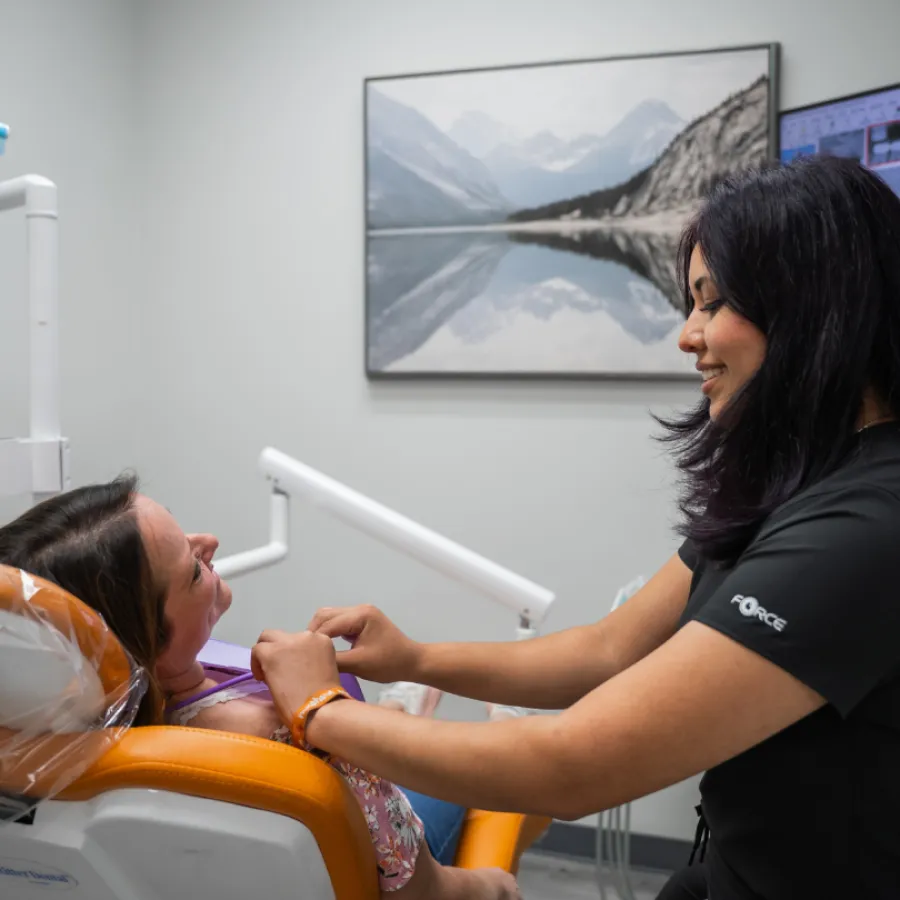
GENERAL DENTISTRY
Feel Good About Your Smile
Enjoy Your Best Smile With General Dentistry in Trophy Club
Our general dentistry in Trophy Club provides the foundation for a lifetime of healthy smiles. We offer services that catch and treat small problems before they become painful or expensive. Our experienced team combines advanced technology with gentle techniques to make every visit comfortable, even for anxious patients.
Regular general dental care helps prevent cavities and gum disease while preserving your natural teeth for years to come. You'll have lower costs through prevention, fewer dental emergencies, and the peace of mind that comes with professional care.
Talk to our team today to schedule your appointment. See how our general dentistry services can keep your smile healthy and bright.

Keep Your Smile Healthy With Dental Cleanings & Exams
Regular dental cleanings and exams are essential preventive services that help maintain your smile's health and appearance.
During cleanings, our skilled hygienists use gentle ultrasonic cleaners to remove stubborn plaque and tartar that regular brushing misses, especially in hard-to-reach areas. This thorough cleaning helps prevent cavities, gum disease, and other problems while leaving your teeth feeling smooth and looking brighter.
Our comprehensive exams use leading-edge technology to detect problems early on, when they're easiest to treat. Digital X-rays provide detailed images, while intraoral cameras let you see exactly what we see inside your mouth.
This advanced equipment helps us identify tiny cavities, hairline cracks, and early gum disease before they cause pain or require extensive treatment.

We Provide Several Other General Dental Services
Our general dentistry services extend beyond routine care to address many oral health concerns. We'll ensure that every aspect of your smile receives the expert attention it deserves!
We offer nonsurgical gum disease treatment that helps restore gum health without invasive procedures.
If you grind your teeth or play sports, our custom mouthguards provide superior protection and comfort compared to store-bought options. Each guard is precisely fitted to your unique dental anatomy for maximum effectiveness.
You can also get specialized treatments for common but often overlooked conditions. Our dry mouth treatment helps restore moisture and comfort while preventing the increased cavity risk associated with reduced saliva. If you struggle with persistent bad breath (halitosis), we offer recommendations for managing this condition.
Make an appointment with our team for general dentistry in Trophy Club.



